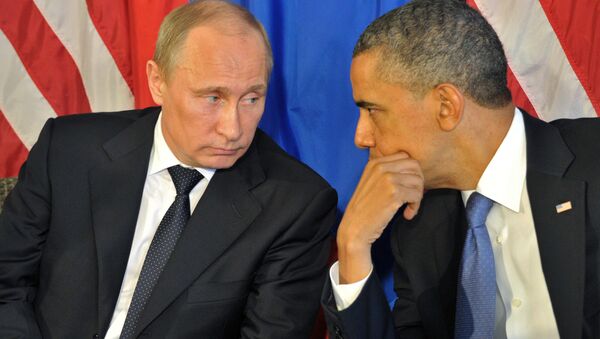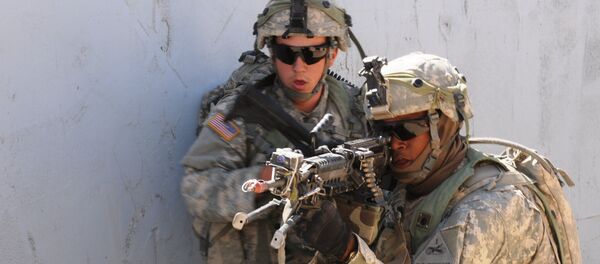There were a number of preconditions for the disruption of US-Russian cooperation on Syria, Andrey Kortunov, Director General of the Russian International Affairs Council (RIAC) noted in his analysis.
"There was no unity in Washington regarding the agreement struck by the head of Russia's Foreign Ministry, Sergei Lavrov, and US Secretary of State John Kerry on a ceasefire in Syria: the State Department adopted one approach, while the Pentagon took the different one. The US military did not want to work with their Russian counterparts, did not trust them," Kortunov wrote.
Moreover, the US has failed to separate the so-called "moderate opposition" from radical Islamists in Syria. The expert called attention to the fact that the US-Russia brokered ceasefire agreement became de facto one sided after the US-backed rebels refused to meet the accord's requirements.
For its part, Russia managed to persuade Damascus and Iran to suspend military actions, Kortunov underscored.
"The collapse of the US-Russian agreement does not mean that, while choosing between Russia and Daesh, Washington has taken the side of terrorists [in Syria]," he continued.
However, it is obvious, the expert noted, that Daesh does not pose an existential threat to Washington and the Pentagon sees no need in establishing closer relations with Russia to tackle the terror threat.
Kortunov highlighted, however, that the Syrian Arab Army's advance on Aleppo continues to trigger serious concerns among the US national security establishment.
Actually, Washington fears that Bashar al-Assad will eventually restore control over the city.
"The CIA and the Joint Staff have said that the fall of Aleppo would undermine America's counterterrorism goals in Syria," as an unnamed senior US administration official told the Washington Post.
"Further developments depend much on the results of US presidential election," he stressed, adding that Hillary Clinton's rhetoric in regard to the Middle Eastern conflict differs much from that of Donald Trump.
Howard LaFranchi of the Christian Science Monitor believes that the collapse of diplomacy in Syria may force Washington to seek new options.
"The US and Russia are now so far apart on Syria that the US might need to take a harder line if it wants to influence events in Aleppo," LaFranchi wrote, stressing that "Obama has repeatedly refused to involve US forces in the Mideast more robustly, and even if he's had a change of heart, his administration is drawing to a close."
Echoing Kortunov, the US journalist highlighted that American and Russian objectives in Syria "are just too divergent to allow for a return to diplomacy any time soon."
"Others point out that diplomacy requires a certain degree of trust, and they add that it's not just American trust in the Russians that has been shattered over the course of the siege of Aleppo," LaFranchi.
There is yet another problem, according to the American journalist: the Obama administration has run out of "carrots" to offer the Russians, referring to the "carrot and stick" approach.
Quoting Yezid Sayigh, senior associate at the Carnegie Endowment's Middle East Center in Beirut, LaFranchi explained that Kerry "was able to draw Russia into the failed cease-fire after he offered US cooperation in going after… the al-Nusra Front."
"The move that didn't sit well with other opposition groups the US favors. That was one of the last cards in the US deck," he underscored.
"At this point, the US doesn't have it in its power to offer the Russians anything in Syria that they would find worthwhile," Sayigh emphasized, as quoted by the US journalist.
On the other hand, the Carter Doctrine which called for protecting the resource-rich region, has lost its importance given the fact the US has recently gained energy independence, he noted.
In contrast, Russia is likely to increase its influence in the Middle East by strengthening ties with Iran, Iraq, Turkey, Israel, and, perhaps, the Persian Gulf realms, the expert suggested.







